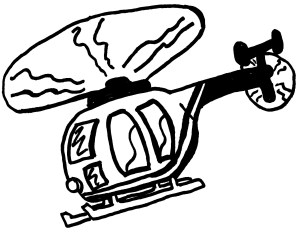It’s been a long time since one of these movies was good, hasn’t it? It’s been four and a half years since Endgame, and since then even I, longtime superhero movie proponent-turned-apathetic-turned-detractor, have grown tired of talking about how this franchise had degenerated into serviceable if dreary (Guardians 3), effective if propagandistically nostalgia-driven (No Way Home), and even ugly and miserable (The Eternals, which I/we never even bothered to review, and Quantumania). I couldn’t quite bring myself to finish Shang-Chi, never bothered with Love and Thunder, and only watched the Doctor Strange sequel because I will watch anything Sam Raimi does, but again, there’s no hyperlink for that because no one around these parts could be arsed to write one. Not even me! But sometimes you get an invitation that you can’t (or don’t want to) reject, and you find yourself drinking a milkshake and looking at Brie Larson’s face and really enjoying yourself.
The big joke going around about this one is that, in order to understand it, you’ll have had to done a ton of homework, including not only watching all of the films but also the TV series Ms. Marvel and WandaVision (which, full disclosure, I did see), and perhaps the universally reviled Secret Invasion, which was so far from my radar that I initially typed out Secret Wars and then had to correct myself after a quick Google search. One of the great things about the Alamo Drafthouse is that, for these movies, they often edit together a quick homemade “previously on” segment to introduce the film for audience members who may not be trying to pass the MCU SATs (the voiceover of which is slowly sounding more and more acerbic, which I cannot object to). Even without that, however, I think this one is actually an easy entry point, with the only truly required “reading” is Captain Marvel, and I think it’s fair to say that if you care about this movie at all, you’re probably caught up. The character introductions to one another in this one serve as functional introductions for the audience as well, and they handle the “who’s who” as deftly as is possible for dialogue that is expository, both in and outside of the text.
Brie Larson returns as Carol “Captain Marvel” Danvers, who is shown to be working for Nick Fury (Samuel L. Jackson) in checking out various disruptions that he’s now detecting from his satellite base. Also on said station—or technically just outside, as we first see her performing EVA—is Monica Rambeau (Teyonah Parris), who picked up some various light-based powers like being able to phase through matter and shoot light blasts in WandaVision. She and Carol have a past, specifically that “Aunt Carol” was like her second mother before disappearing in the 1990s with the (unfulfilled) promise to return; further, she was one of the people who disappeared during “the Blip,” and returned to learn that she was just a few months too late to be able to say goodbye to her mother before she succumbed to cancer. Meanwhile, planetside in Jersey City, teenaged Kamala Khan (Iman Vellani), Captain Marvel superfan who has styled her own superhero identity of “Ms. Marvel” after Carol’s, is drawing her fanfic of getting to team up with her hero, when she suddenly disappears. It seems that elsewhere, a woman named Dar-Benn (Zawe Ashton) from the resource-depleted planet of Hala has discovered the location of a seemingly magical gauntlet/bangle, which she plans to use to restore her world to its prior glory. Because of wibbly-wobbly spacey-wacey quantumbabble, this leads to Kamala, Carol, and Monica becoming “entangled,” such that any time two of them use their powers, they physically exchange places.
This fairly absurd premise introduces a freshness and a spontaneity to the proceedings that makes it fun and frenetic in a way that this franchise hasn’t really managed to elicit in a while. When the MCU goes cosmic, that’s generally where it has the most room to play around and be weird and fun, as evidenced by the first two Guardians and Rangarok, and this one takes a page from the playbooks of those movies to visit some novel backdrops for interesting action sequences in vibrant color—and it’s been a while since you could say that about one of these. This includes a sequence of hand-drawn animation of Kamala’s comics that feature her fighting alongside Captain Marvel, complete with onomatopoeic “booms,” as well as an extended scene in a palace on a world where the language is song, but the highlight for me comes at the climax. This is the kind of movie where there aren’t enough undamaged escape pods to flee a deteriorating space station, but there are a few dozen kitten-like aliens with secretly tentacled mouths and which have previously been demonstrated to be capable of swallowing people whole and spitting them back out again. As a last ditch effort, these “cats” are let loose to devour the remaining 150 people on board as they run in terror before adorable kittens, so that the cats can be put in the last escape pod and then vomit everyone up later once they’ve escaped. All of this literal cat herding is set to “Memory” from Webber’s Cats. It’s the kind of fun that these movies should be having/inducing, if they must continue to be made.
What really makes the movie work, however, is the chemistry between its cast members. The three women, whom Kamala dubs “The Marvels” even though Monica claims no such moniker (in the movies, at least), play well against each other. Carol and Monica’s estrangement makes for easy relationship shorthand, but that’s not a criticism, since this film could (as its detractors have assumed) be too lore-dense for its own good. Kamala’s hero worship of Carol makes her fulfillment of that fantasy a lot of fun to watch, and although it would be very easy for a different performer to fail to stay on this side of the line between endearing and overbearing, Vellani is doing stellar work as the younger Marvel; she’s not even close to going out of bounds. Her energy is infectious, and her realistic reactions to things that the other characters (and we who have been watching these movies for fifteen years) have become jaded to make it all feel fresh and new again.
I’m sure there is good faith criticism of this movie that doesn’t focus solely on the product so much as its perceived “wokeness” or its box office performance. This is a show that follows the maxim of MST3K: “repeat to yourself it’s just a show” (and at this point, this is more of a fun, not-too-serious episode of a long-runner show than it is a movie unto itself; it’s time we all stopped kidding ourselves about that), “and you should really just relax.” For a lot of extremely online people who have a hyperfixation on this franchise and experience no joy outside of taking it away from others, I’m sure they’ll also find no end of faults to complain about here. I can already sense them opening their microblogging platforms; I can already hear the deep inhale as they prepare to unleash an incogent rant about how Disney is trying to ram something down their throats (it’s always about throats with those guys). I’m not here to carry water for that monopoly, I assure you, and the company’s failure to invite the director to the premiere is outrageous. If anything, though, Thanksgiving season is a time when a lot of people end up cooped up with their families for extended periods of time, and sometimes the best way to get everyone to shut up for a while is to let the local Regal play babysitter for a while. There are worse things to do.
-Mark “Boomer” Redmond







